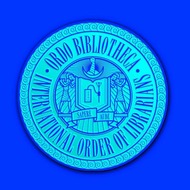
(View Complete Item Description)
Guided Inquiry (GI), also known as the Information Search Process (ISP), is a research-based model for teaching information-based inquiry through the collaboration of the school librarian and classroom teacher. A Powerpoint presentation WITH NOTES divides the module into three sections: 1) How do we learn? describes constructivist learning theory developed by Piaget, Dewey, Bruner, Kelly, and Vygotsky and the research on why students plagiarize.2) The centerpiece for this section is the Information Search Process, a staged model that guides information users through Task Initiation, Exploration, Topic Selection, Focus Formulation, Collection of Information, Presentation, and Assessment. The ISP takes a multi-dimensional approach to learning that includes thoughts, feelings, and actions of the information user as they progress through these stages. This section also includes authentic learning tasks as the context for the ISP. 3) Interventions. Since the model is research-based, it is predicative. School librarians can anticipate confusion, frustration, and information behaviors such as selecting information that indicate successful or unsuccessful progression through the ISP stages. The concept of intervention is critical to Guided Inquiry as the school librarian, in collaboration with the classroom teacher, diagnoses the problem and provides an intervention that enables the information user to move from one stage to the next. The goal of this module is to familiarize students with ISP stages, provide print and digital tools for each of the ISP stages, Each section of the module has a learning task for students that requires them to apply what they have learned.
Material Type:
Module
Author:
carol gordon




















